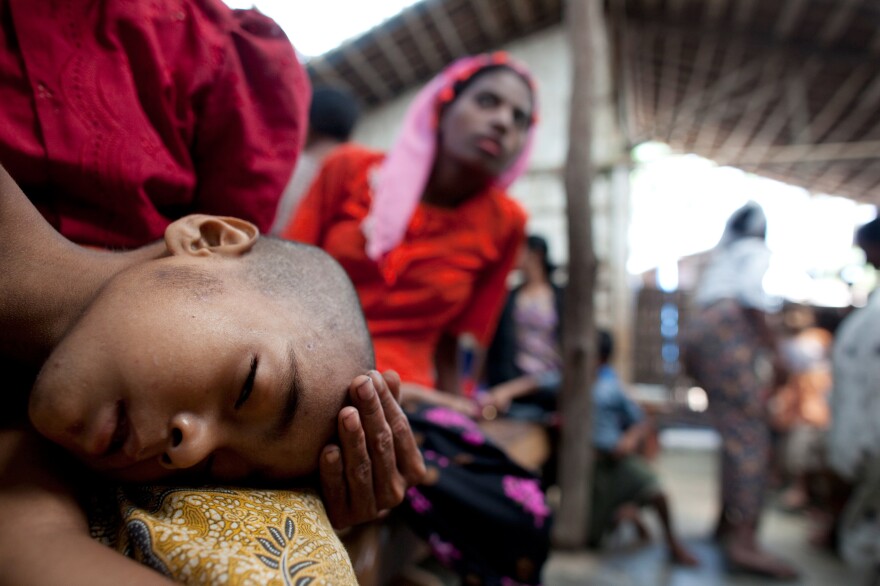A new study finds a disturbing trend in the battle against malaria. There are highly effective drugs called artemisinins — and now resistant malaria is turning up in parts of Myanmar, the reclusive country also known as Burma, where it hadn't been seen before.
The study was conducted by Dr. Charles Woodrow and his colleagues at the Mahidol-Oxford Tropical Medicine Research Unit in Bangkok.
"Particularly toward the north, resistance is certainly present as we highlight and now lies quite close to the northwest border with India," Woodrow says.
There's concern that if the resistance takes root in India, it could quickly jump to other parts of the world.
Indeed, the drug-resistant strain is already a problem on the other side of Myanmar along the frontier with Thailand. And it's widespread in Cambodia.
"In parts of Cambodia," says Woodrow, "we are really down to the last possibilities in terms of how we treat malaria. We are considering combining three drugs, extending courses from three days up to five days. So I think midterm, this is a major problem."
The great concern is that Southeast Asia has historically been a graveyard for malaria drugs. In the 1960s, malaria parasites in Thailand learned how to fend off chloroquine, a first-line malaria drug. That resistance eventually spread around the globe. In sub-Saharan Africa, the loss of chloroquine cost hundreds of thousands of lives.
In the 1990s, artemisinin-based drugs from China became the new global standard for treating falciparum malaria, but studies like this one in Myanmar show that artemisinin resistance is growing. And this is a huge problem, because malaria, according to the World Health Organization, sickens almost 200 million people a year and kills roughly 600,000.
Woodrow says the resistance is developing slowly. In combination with other drugs, artemisinins are still effective. But he's not entirely optimistic: "If the parasites were to evolve in a way that made them entirely resistant to artemisinins, this would be disastrous over a short time scale. Because you'd be left with the remnants of all the other drugs we'd tried to use in the past."
He calls this the "nightmare scenario." The world is not there yet, but in what Woodrow calls the midterm — say, the next two to five years — he predicts that artemisinin-resistant malaria is going to be causing a lot of problems in Myanmar and elsewhere.
Copyright 2023 NPR. To see more, visit https://www.npr.org.






